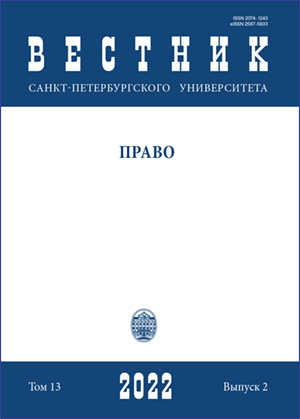Impact of digitalization on antitrust regulation and control over economic concentration in the high-tech sector
DOI:
https://doi.org/10.21638/spbu14.2022.203Abstract
The article discusses topical issues of protection and regulation of competition in the markets in the digital business environment. The authors noted that the systems of regulation and law enforcement should be flexibly combined, harmonized in order to develop adequate measures to stimulate fair competition. From the standpoint of adaptation to Russian practice, the foreign experience of the antimonopoly authorities in terms of regulating online markets, price algorithms, and mergers and acquisitions has been studied. The high-tech sector is particularly dynamic. In this regard, the authors draw attention to the fact that in the digital economy of demand, the processes of monopolization, competition persist, but their content is transformed, which complicates the analysis and assessment of monopolization, dominance, competition. Anticompetitive practices can lead to the dominance of a single platform. The signs of the dominant position of digital platforms are revealed. Based on the regulatory and legal approach, the article summarizes the Russian and foreign experience of qualifying economic concentration and dominant position, identifies negative factors that cause the expansion of regulatory control of antimonopoly authorities over digital platforms. The legal nature of digital platforms, direct and indirect network effects have been studied in detail. It has been proven that algorithms can serve as collusion tools in both horizontal and vertical agreements. From the standpoint of economic research methods, an overview of the assessment of the dominant position of antimonopoly authorities in the digital economy is carried out, it is noted that the preconditions have been created for the formation of a platform economy. The features of the antitrust policy in relation to digital platforms in Russia, the European Union and the United States are considered. It is concluded that antitrust legislation in recent years has become a powerful regulatory tool at the level of different jurisdictions.
Keywords:
economic concentration, competition, antitrust regulation, digitalization, hightech sector, digital platforms, price algorithms
Downloads
References
Downloads
Published
How to Cite
Issue
Section
License
Articles of "Vestnik of Saint Petersburg University. Law" are open access distributed under the terms of the License Agreement with Saint Petersburg State University, which permits to the authors unrestricted distribution and self-archiving free of charge.






